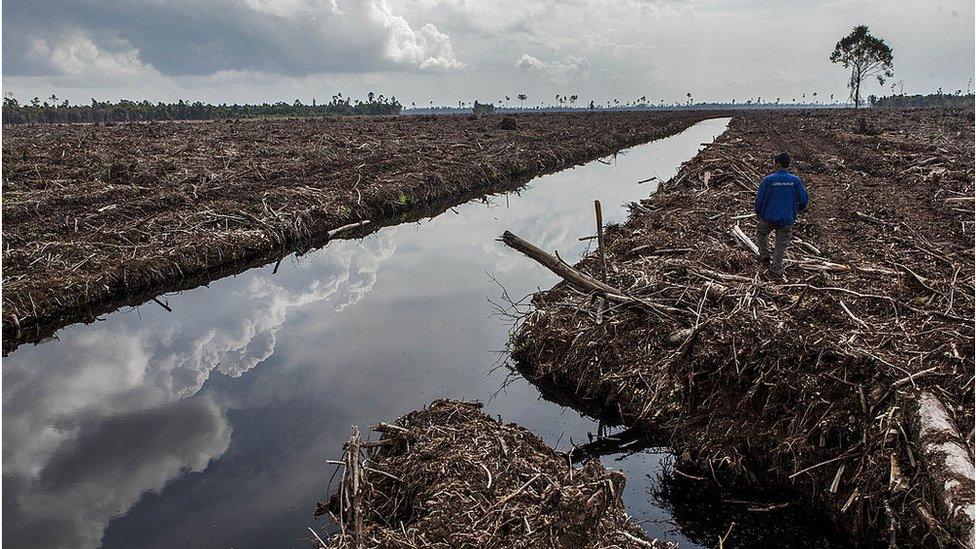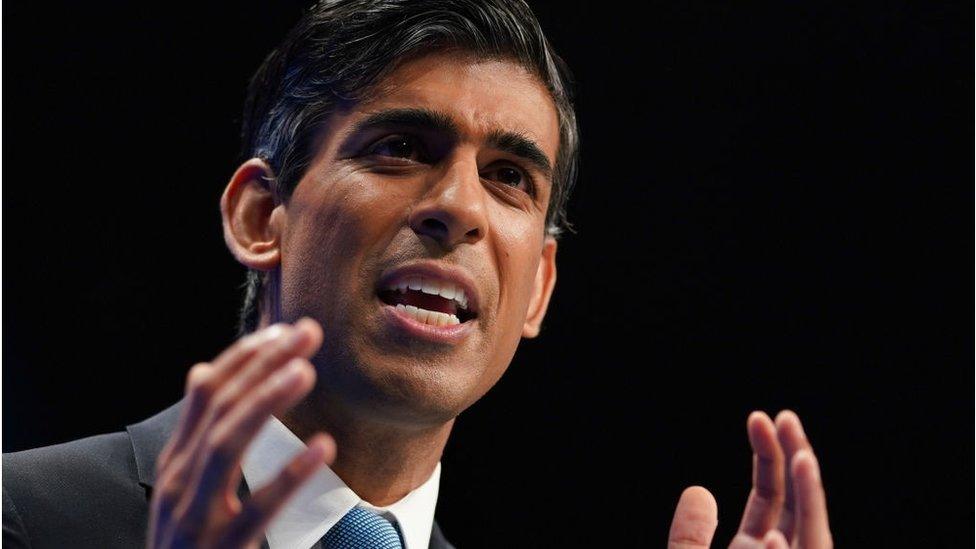Major investor will target bosses at firms failing on climate
- Published

Aviva Investors will seek to remove board directors of firms that continue to take part in deforestation
A major UK investment fund has said it will vote to try to get directors kicked out of firms that fail to make good on environmental pledges.
Aviva Investors also wants bosses' pay to be linked to sustainability goals.
It is the latest big investment firm to ramp up the pressure on corporations in a bid to make them clean up their acts.
BlackRock, the world's largest fund, has told the firms it invests in to step up on sustainability or face the consequences.
Aviva Investors, which has £262bn of assets under management, set out its expectations in a letter that will be sent to 1,500 firms in 30 countries this week.
The fund said it had broadened its definition of sustainability and would now focus on issues such as biodiversity and human rights, alongside existing priorities like climate change and executive pay.
"We will hold boards and individual directors accountable where the pace of change does not reflect the urgency required," said the annual letter from Aviva Investors boss Mark Versey.
Mr Versey said there had been an "alarming" 68% decrease in animal and plant species between 1970 and 2016.
"This is of serious concern as ecosystem services provided by the natural world underpin our economies and societies and will increasingly become an important driver of company valuations," Mr Versey said, adding that more than half of the world's economic output is "reliant on biodiversity".
On human rights, Aviva expects companies it backs to scrutinise the impact they have when doing business, and to take action to stop harm.
Firms will need to give more detailed explanations of how they intend to meet environmental goals, it added.
Mirza Baig, Aviva Investors' head of environmental, social and corporate governance, told the BBC that some companies intentionally set vague targets to avoid being held to account.
He said Aviva would increasingly use its vote as a shareholder to try to oust directors at firms that had a "high impact" on the planet but did little to rectify this.
The fund may also vote against executive pay deals if a firm is falling short, and as a last resort could withdraw its investment.
'Things could be different'
Last year 280 firms changed their practices after pressure from Aviva Investors, Mr Baig said. However, he urged more big investment firms to use their "loud" and "influential" voices to drive change.
"If there was enough pressure being put on businesses then the world would look very different," he said.
Big investment funds are increasingly leaning on firms to make them change the way they do business.
Last week Larry Fink, the chief executive of BlackRock, the world's biggest investment fund, denied that the firm was being "woke" in calling for stronger climate policies from companies.
Instead, he said the move made good business sense at a time when the public increasingly expects companies to behave ethically.
He insisted his firm was being capitalist, external in its outlook, adding: "Make no mistake, the fair pursuit of profit is still what animates markets; and long-term profitability is the measure by which markets will ultimately determine your company's success."
- Published28 September 2021

- Published18 October 2021
